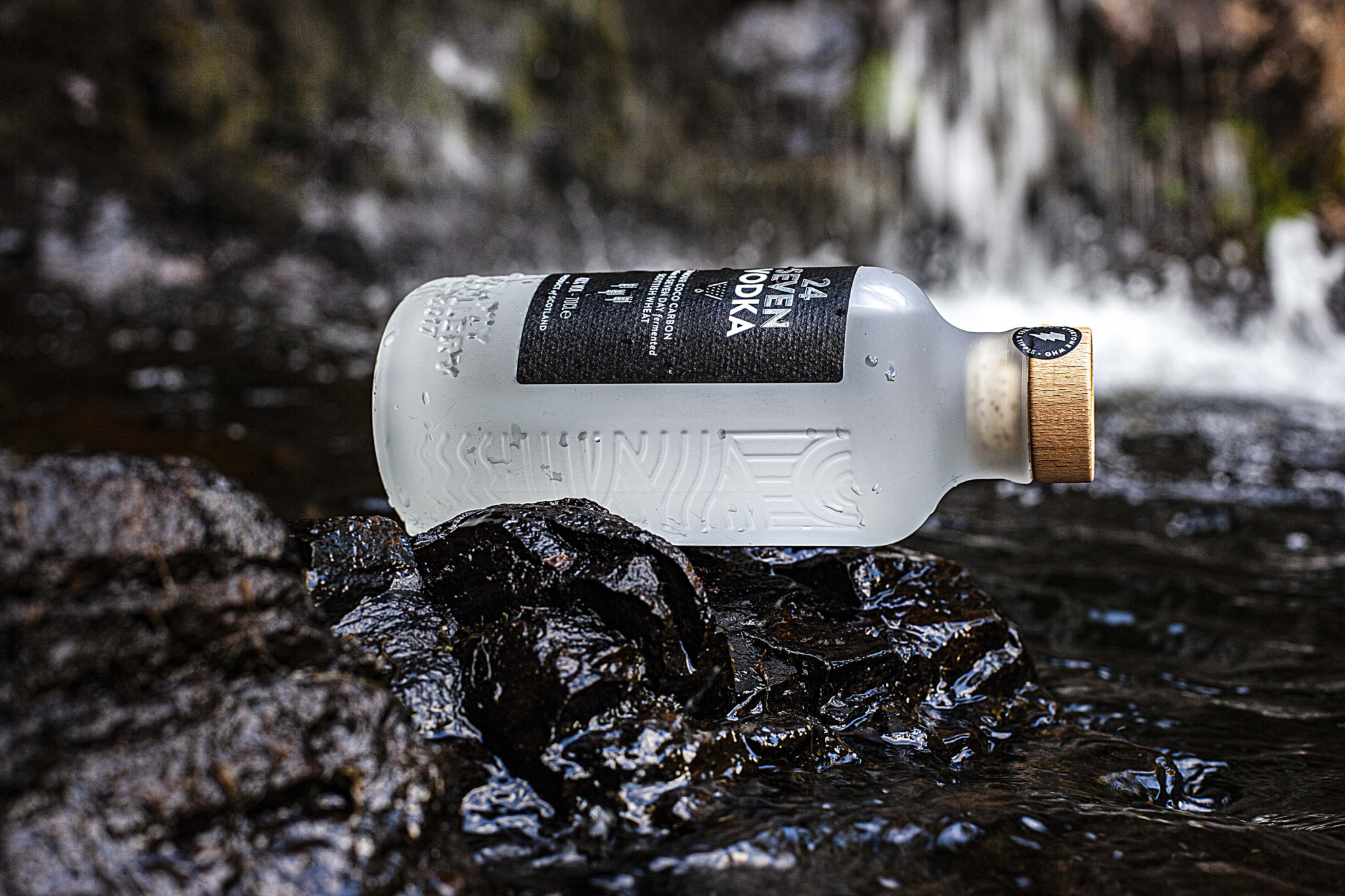 VODKA is still Scotland’s biggest-selling spirit by some way, but as yet the ‘craft boom’ that’s been seen in other drinks categories – notably gin – hasn’t been seen in vodka, where the big brands still dominate.
VODKA is still Scotland’s biggest-selling spirit by some way, but as yet the ‘craft boom’ that’s been seen in other drinks categories – notably gin – hasn’t been seen in vodka, where the big brands still dominate.
Is vodka set for its own explosion of craft products in the near future? And can licensees and bartenders expect to see growing demand for small-batch vodkas from switched-on customers?
Graham Taylor, founder of Crafty Distillery – the company behind 24Seven Vodka and Hills & Harbour Gin – said there are reasons the craft vodka sector hasn’t taken off like in other sectors.
He reckoned there is still ‘a lack of appreciation for just how good really well crafted vodka can be’.
“[And] there is a much lower appetite from small craft producers to invest in the equipment, capability and knowledge that is essential to creating true craft vodka from scratch,” said Taylor.
Despite the hesitation from consumers and producers alike, Taylor reckoned the appreciation for craft vodka has been ‘slowly increasing’.
“While I don’t see this as a ‘craft boom’, I think we will continue to see solid growth,” he said.
“Which for the on-trade represents a great opportunity to tap into this growing audience with a back-bar that has some craft vodka offerings.”
That was backed up by Emma Hamilton of English vodka maker Edwards 1902, who said that although much of the spirit’s popularity is down to its inclusion in popular cocktails, there is a trend towards consumers wanting to find out more about vodka.
“Alone, many people ‘don’t drink vodka’ – but then they realise it’s in at least one of their favourite cocktails,” said Hamilton.
“It also definitely feels like there’s a new educational piece happening around vodka; new and exciting vodkas now being available, many made here in the UK offering a premium, interesting alternative to the big brands.”
And vodka is a spirit that deserves more attention, said Charlie Wilson, Scottish brand ambassador at Dunnet Bay Distillers, the company behind Holy Grass Vodka and Rock Rose Gin.
“Vodka is often overlooked as a spirit in terms of flavours and styles,” said Wilson. “Whether it be the base product used in production eg. grain, potato, or even peas nowadays, or the way in which it is distilled.
“These are often overlooked and the general assumption is that vodka should be colourless, odourless and tasteless, which does the category and its producers a disservice.
“For example our own Holy Grass Vodka uses a wheat base and a number of botanicals including holy grass which gives it a silky texture and herbaceous vanilla notes.”
Hamilton, at Edwards 1902, agreed, saying vodka deserves more than a reputation as ‘a boring sibling to gin’.
“Great vodka is so interesting and full of interesting flavours,” she said.
“A grain vodka couldn’t taste further from one made of potatoes.”
And while craft vodka has yet to reach the heights of its siblings in other spirits categories, there are good reasons for operators to consider stocking them.
“The advantages to any bar or restaurant are two-fold,” said Taylor at Crafty Distillery.
“Stocking a craft vodka brand beyond the mainstream offering will help match your back-bar with the value proposition of your business.
“So if your offering is all about quality food and quality drinks then it’s essential to have craft brands that fit in with your overall values.
“Secondly, just like the consumer now expects a certain number of craft brands in other spirits categories, it is inevitable that the same expectation for craft vodka brands will become required.”
Taylor said he expects to see ‘more curated craft vodka menu selections’ appearing on drinks lists in the near future, which will include ‘simple serves to appreciate the beauty of craft vodka, through to more elaborate cocktails’.
























